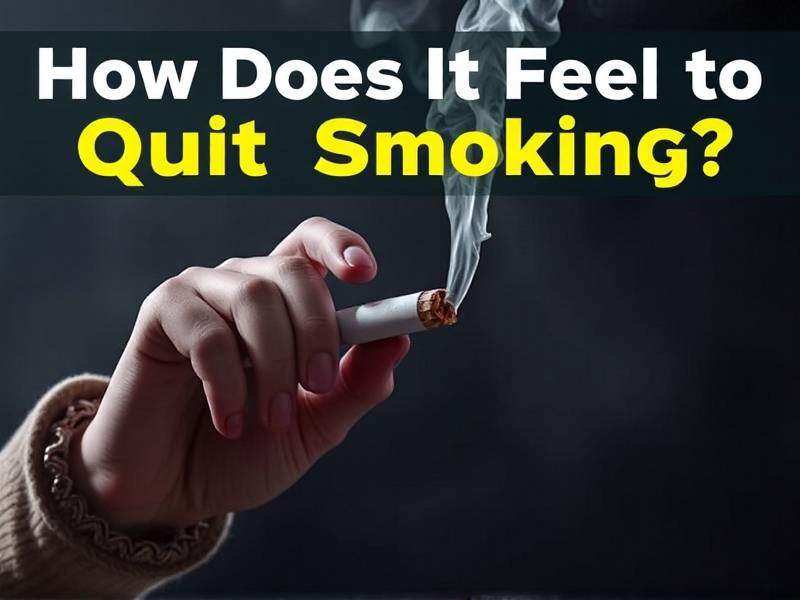How Does It Feel to Quit Smoking?
Introduction: The Journey to Freedom
Quitting smoking is a significant life decision that many people face. It's a journey filled with challenges, but also one of immense personal growth and newfound freedom. In this article, we delve into the emotional and physical experiences that individuals go through when they decide to quit smoking.
Embracing Change: The Emotional Landscape
1. Anticipation and Anxiety
The anticipation of quitting smoking can be both exhilarating and daunting. Many smokers feel a mix of excitement about the benefits they will reap and anxiety about the potential withdrawal symptoms.
2. The First Few Days
The initial days without cigarettes are often marked by intense cravings and withdrawal symptoms such as irritability, headaches, and insomnia. However, these feelings typically begin to subside after a few weeks.

3. Emotional Rollercoaster
Quitting smoking can lead to an emotional rollercoaster ride. Some individuals experience mood swings, increased sensitivity, or even feelings of sadness or anger. It's important to recognize these emotions as part of the process.
Physical Transformation: A New You
1. Immediate Benefits
Within hours of quitting smoking, your body begins to heal itself. Your blood pressure starts to drop, your heart rate slows down, and your lung function improves.

2. Long-term Health Improvements
Over time, quitting smoking can lead to significant health improvements such as reduced risk of heart disease, stroke, cancer, and respiratory problems.
Support Systems: Your Allies in Quitting
1. Friends and Family
Having a strong support system is crucial when quitting smoking. Friends and family can provide emotional support, encouragement, and practical advice during the challenging times.
2. Professional Help
Seeking help from healthcare professionals or joining support groups can also be beneficial in managing withdrawal symptoms and maintaining motivation.
Overcoming Challenges: Strategies for Success
1. Identifying Triggers
Identifying triggers that make you want to smoke is essential for developing coping strategies.
2. Rewarding Yourself
Set milestones for yourself and reward your progress along the way.
3. Staying Focused on the Benefits
Remind yourself of the health benefits you're gaining by quitting smoking.
Conclusion: Embracing a Healthier Life
Quitting smoking is not an easy feat but it's definitely worth it for the improved quality of life it brings. By understanding the emotional landscape of quitting and adopting effective strategies for success, you'll be well on your way to embracing a healthier life without cigarettes.
Remember that every journey is unique; trust in yourself and seek support when needed—your journey towards a smoke-free life begins now!
